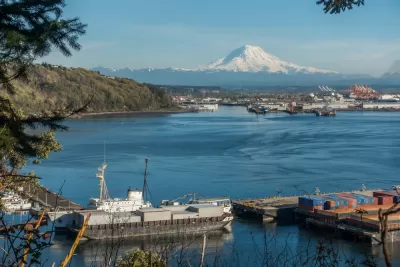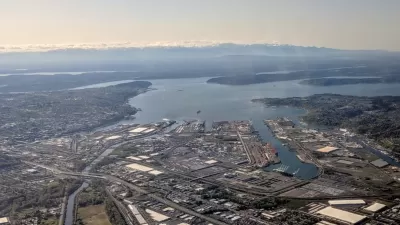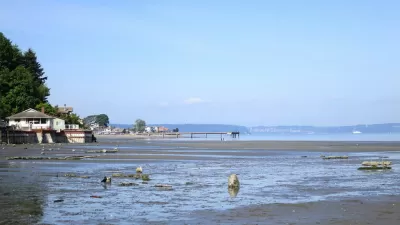The massive and controversial Tideflats methanol plant proposal will no longer trouble environmentalists in the Pacific Northwest.

[Updated 4/25/2016] "A proposal to build the world’s largest methanol plant at the Port of Tacoma is dead," reports Kate Martin.
Amid widespread public criticism of the project and several port commissioners’ signals it had lost their support, the China-backed company behind the $3.6 billion project on the former Kaiser smelter site said Tuesday it had canceled the proposal, just days ahead of a key port vote on its lease.
Martin's coverage of the news includes quotes from the president of Northwest Innovation Works, the company behind the failed proposal, as well as local and state politicians that debated the project. Opposition to the proposal originated from the environmental community. One interesting result of the project is an ongoing political movement by the Save Tacoma Water environmental organization "to have voters create requirements on new high-demand uses of water remains in progress…"
[The headline of this post was corrected.]
FULL STORY: Tacoma methanol project canceled

Planetizen Federal Action Tracker
A weekly monitor of how Trump’s orders and actions are impacting planners and planning in America.

Chicago’s Ghost Rails
Just beneath the surface of the modern city lie the remnants of its expansive early 20th-century streetcar system.

San Antonio and Austin are Fusing Into one Massive Megaregion
The region spanning the two central Texas cities is growing fast, posing challenges for local infrastructure and water supplies.

Since Zion's Shuttles Went Electric “The Smog is Gone”
Visitors to Zion National Park can enjoy the canyon via the nation’s first fully electric park shuttle system.

Trump Distributing DOT Safety Funds at 1/10 Rate of Biden
Funds for Safe Streets and other transportation safety and equity programs are being held up by administrative reviews and conflicts with the Trump administration’s priorities.

German Cities Subsidize Taxis for Women Amid Wave of Violence
Free or low-cost taxi rides can help women navigate cities more safely, but critics say the programs don't address the root causes of violence against women.
Urban Design for Planners 1: Software Tools
This six-course series explores essential urban design concepts using open source software and equips planners with the tools they need to participate fully in the urban design process.
Planning for Universal Design
Learn the tools for implementing Universal Design in planning regulations.
planning NEXT
Appalachian Highlands Housing Partners
Mpact (founded as Rail~Volution)
City of Camden Redevelopment Agency
City of Astoria
City of Portland
City of Laramie





























